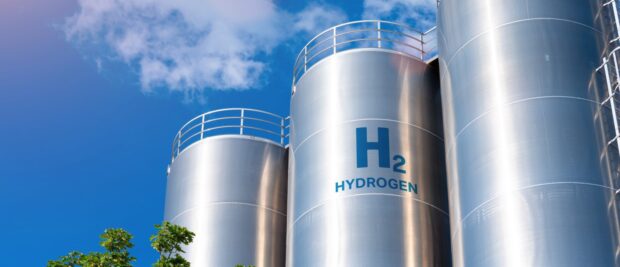
An Aberdeen University-led study exploring the use of a depleted gas field in Scotland to store hydrogen has raised concerns about the future viability of similar projects.
The research concluded the Cousland gas field in Midlothian fails to meet the criteria for safe subsurface hydrogen storage and recommended it should not be used.
Located near Dalkeith, Cousland was decommissioned in the 1960s and other academic studies had identified it as a potential contender for large-scale hydrogen storage.
Hydrogen storage is a crucial factor for the development of a hydrogen fuel economy as part of meeting UK net zero ambitions.
A report by the Royal Society estimated the UK could need as much as 100TWH of hydrogen capacity by 2050.
While hydrogen can be safely stored in rock salt caverns, there are no onshore salt deposits located within Scotland.
As a result, some studies proposed using Scotland’s depleted onshore and offshore gas fields for hydrogen stores.
However, study leaders Professor John Underhill from the University’s Centre for Energy Transition and Malcolm Butler at the UK Onshore Geophysical Library (UKOGL) found numerous barriers to using the Cousland site for hydrogen storage.
These barriers include a lack of evidence of the nature of the subsurface sedimentary rocks and the structure of the field.
After analysing existing geological data from the UKOGL, the study concluded Cousland fails to meet the criteria for safe storage, is a poor site for a hydrogen repository and should not be considered.
The findings could call into question the viability of using similar decommissioned onshore sites for hydrogen storage due to concerns over potential risks to the environment and surrounding communities from hydrogen leaks.
The study could also have implications for hydrogen storage plans at similar offshore sites, including Centrica’s Rough field in the North Sea.
The issue of gas storage is a key concern for the UK government’s net zero ambitions, with a recent report finding a lack of storage and supply flexibility could leave the country’s gas system “exposed”.
‘Forensic’ analysis of hydrogen storage needed
Professor Underhill said the study makes clear the need for an independent evaluation of subsurface sites proposed for use in the energy transition.
“In this particular case, it emphasises the storage challenges associated with porous media (materials) in general and in subsurface sites in onshore areas in particular,” he said.
“If a site like [Cousland] was to be used for hydrogen, it did leak and the gas built up in a confined space, it is highly flammable when mixed with small amounts of ordinary air and more so than methane (natural gas) that currently provides domestic gas supplies.
“So we need to be very cognizant of the safety aspects.”
Unlike carbon dioxide and other gases, Professor Underhill said hydrogen presents a more difficult challenge when it comes to storage.
“Hydrogen has been proposed as a possible green energy vector in the transition, but it forms a small, nimble molecule and is very difficult to contain,” he said.